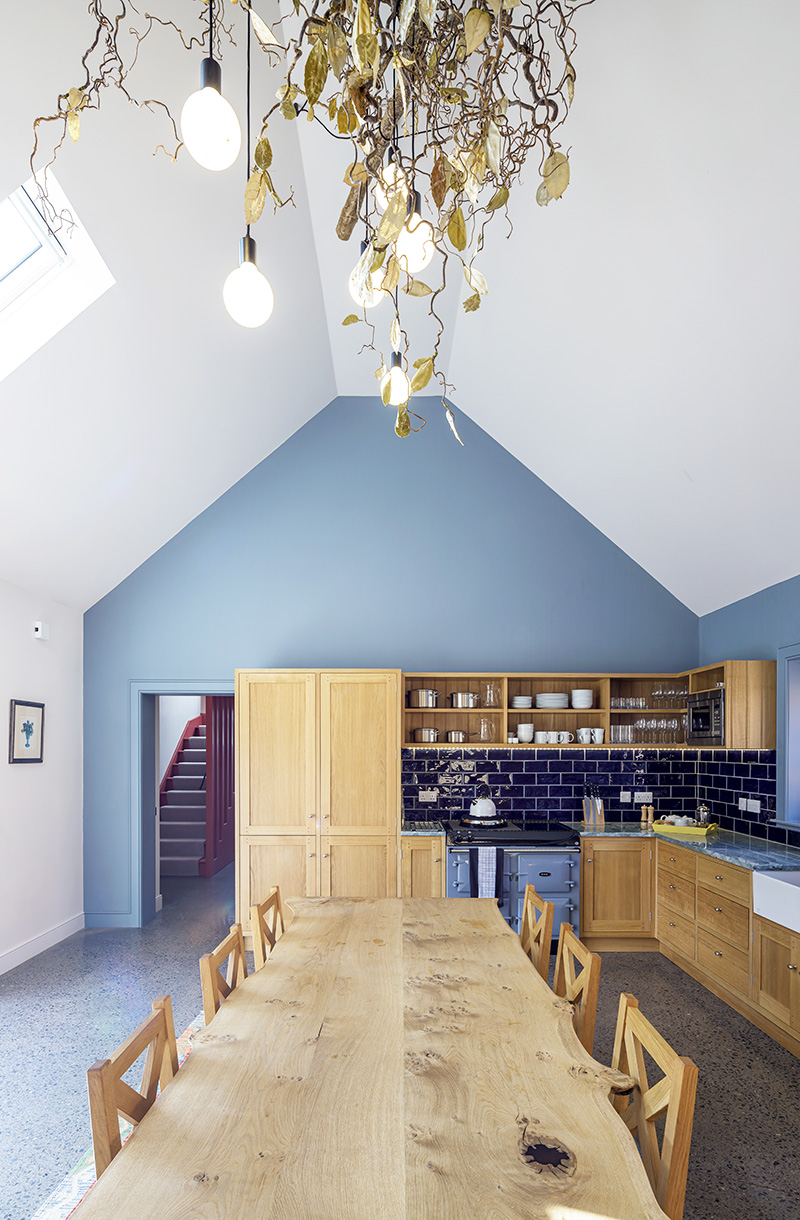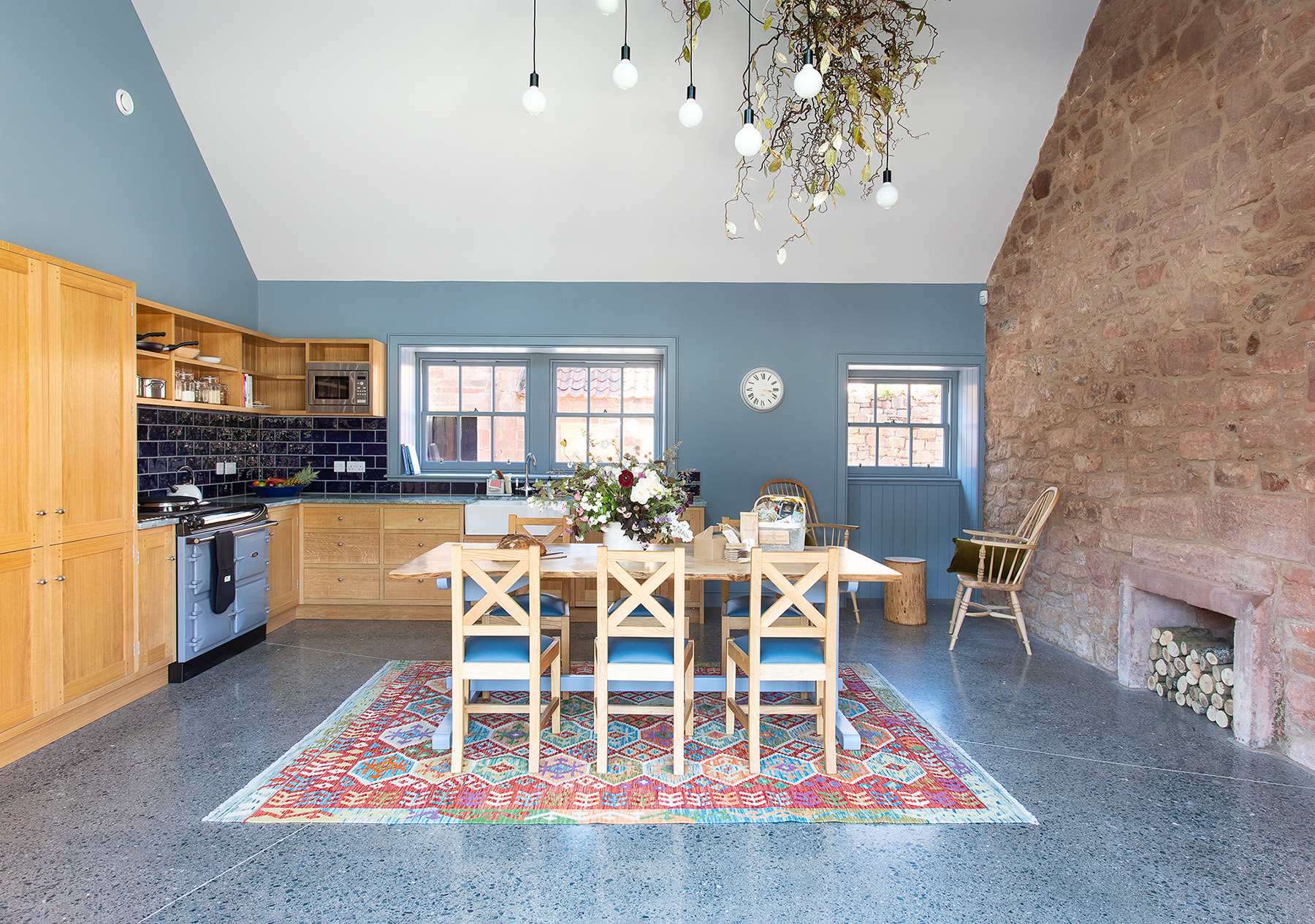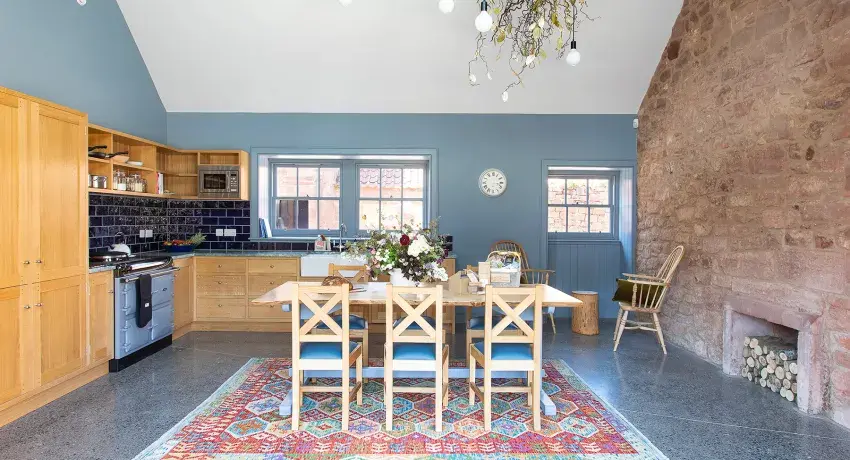
All businesses have an origin story, but few are as wholesome as that of Papple Steading, a luxurious and environmentally sensitive retreat location in East Lothian in Scotland, which hosts holidays, corporate functions, events and a range of activities.
Its owner, George Mackintosh, wanted to save a farm (the ‘steading’) in Papple, which sits in the foothills of the Lammermuir Hills. He set out to keep the Papple Steading in public use and not allow it to decline. The project is being developed in stages and a museum, an auditorium, a shop, café and more apartments will join the accommodation already available.
George says: “There’s lots of talk about industrial heritage but not much is said about agricultural heritage, so we decided to start that conversation and to save this fine steading. To do that we had to make a business out of it so it’s not just physically sustained but is also financially sustained. In the long term, for it to work it has to cover its costs.”
The development of phase two has just begun and will take a couple of years. There will be an agricultural centre and library containing information on the agricultural history of Scotland generally and East Lothian particularly.

“These centres,” says George, “will include stories about Papple Steading’s laird, A.J. Balfour, who was British prime minister from 1902 to 1905. It will tell stories about Eve Balfour, who spent her childhood on the estate and went on to found the Soil Association. There will be lots of stories about people, technologies and the economics of the agricultural business.”
Currently, Papple Steading runs as a holiday and business retreat where you can rent one or all of the units available. Companies often use the venue for awaydays, strategy meetings or business retreats and families use it for holidays and celebratory gatherings.
Each unit has a kitchen, so guests can choose to self-cater or, right at the other end of the scale, Papple Steading can offer fully catered breaks.
Food is at the heart of the offering at Papple Steading.
“We have three levels of cooking activity,” George says. “We run AGA courses, which are a great success. Secondly, the locally based Yarrow Cookery School does courses in our farmhouse using the AGA. Those too are very successful. Our catering partner Buck & Birch’s ethos is sustainability. They harvest locally and we eat extraordinary things – from primroses to nettles to dandelions.”
Each of the properties has a new, fully electric AGA cooker. There are two eR3 models and two AGA 60 cookers. Guests just turn them on when they want to cook. The next phase of the development will see another nine apartments created, each with a new Rayburn Ranger.
“Our guests enjoy using the AGA cookers,” says George. “When they walk in you get this sigh of contentment when they see the AGA. It’s almost that they’re satisfied they’ve come somewhere nice. The AGA cookers are beautiful, aesthetically pleasing, and they work. They’re easy to clean so everyone’s happy. The housekeeping staff are happy and the guests are happy so they’ve been a good investment.”
“In phase two we’re going to go for a more contemporary style to suit those people on activity holidays. We’re a great place for walking and cycling, surfing and paddleboarding or rock climbing. The Rayburn Ranger fits the look perfectly.”
Papple Steading is going through a sustainability accreditation process to show it is a carbon negative development.

It has a ground source heat pump, electric robot mowers, a wildflower meadow, and ancient woodland. George has also planted lots of trees.
“When you measure all that, we’re actually better than net zero. Not because we are offsetting, but because of our footprint within the land and property we own,” George says. “Visit Scotland is promoting responsible tourism. That means the host should be responsible about the environment, such as by not having hot tubs. It’s encouraging guests to be responsible by perhaps choosing a property with a low-carbon footprint – and that might be because they have an electric AGA that can be switched on and off.”
“We wanted to create something that is sustainable and has longevity. The purpose is to save the steading and make it available to the public in five years, 25 years and 50 years’ time.”
More information and booking details can be found at papple.com.











